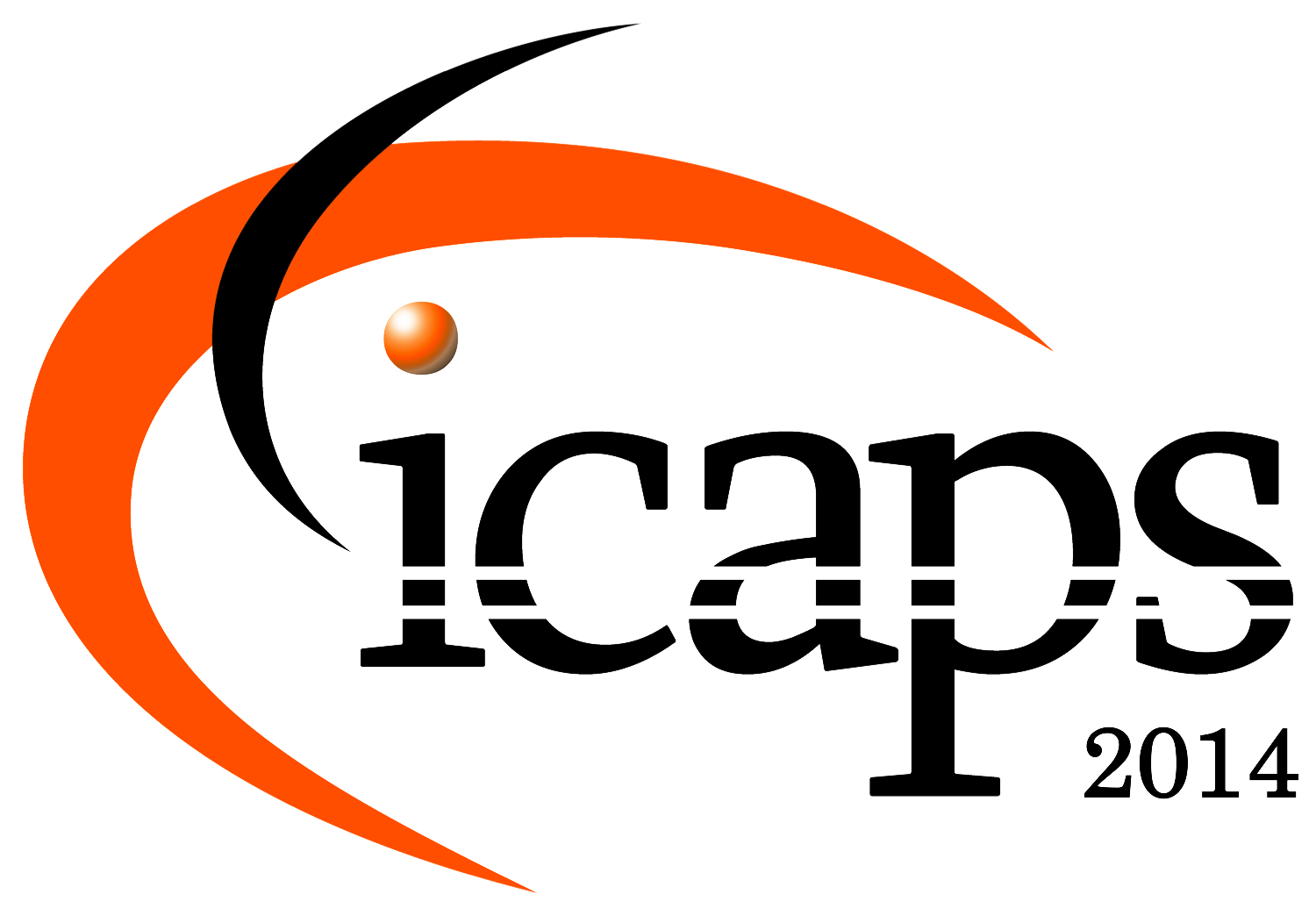ICAPS 2014 Call for Papers
Technical paper submission deadlines: October 29 (abstracts), November 5 (papers)
This year's program committee welcomes papers that address planning and scheduling problems of all kinds, including but not limited to:
- continuous state and action spaces
- uncertainty and stochasticity
- partially observable and unobservable domains
- learning
- multi-agent and distributed systems
- on-line and real-time domains
- continuous and lifelong planning
- plan management and goal reasoning
- plan recognition
- domain modeling and knowledge representation
- commercial applications
Relevant contributions include, but are not limited to:
- Analytic and empirical studies of planning and scheduling problems and algorithms for solving them;
- Studies applying automated planning and scheduling technologies to real problems and descriptions of deployed applications;
- Techniques that extend the complexity and the types of problems that can be solved with current techniques; and
- Analytic and implemented tools for supporting automated planning and scheduling.
We particularly welcome papers that bring into planning and scheduling useful computational technologies from other areas of artificial intelligence and computer science.
Submission
Following recent editions of ICAPS, authors may submit long papers (8 pages plus up to one page of references) or short papers (4 pages plus up to one page of references).
Details about the submission procedure can be found here
Special Tracks
There will be three special tracks this year:
- Robotics: including planning and scheduling at the level of teams, tasks, behaviors, motions, and controls; autonomous or mixed-initiative systems; formal methods and fielded systems
- Novel Applications: including emerging and deployed applications, case studies and lessons learned
- Journal Paper Presentations: work relevant to ICAPS that has appeared recently but has not been presented at a major AI conference
Author and reviewer guidelines
All papers will be reviewed based on the standard criteria for clarity, relevance, significance, originality, and soundness.
Full technical papers are expected to report on new research that makes a substantial technical contribution to the field and is placed in the context of existing work.
Short papers can report on new research or other issues of interest to the ICAPS community. Examples of work suitable for short papers include: novel ideas that are not yet fully developed or whose scope is not large enough for a full paper; important implementation techniques; novel interesting benchmark problems; short experimental studies; interesting applications that are not yet completely solved or analyzed; position or challenge papers; etc.
Authors making multiple submissions must ensure that each submission has significant unique content. Papers submitted to ICAPS-14 may not be submitted to other conferences or journals during the ICAPS-14 review period nor may they be already under review or published in other conferences or journals. Overlength papers will be rejected without review.

